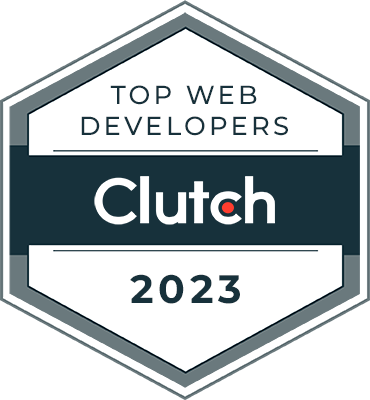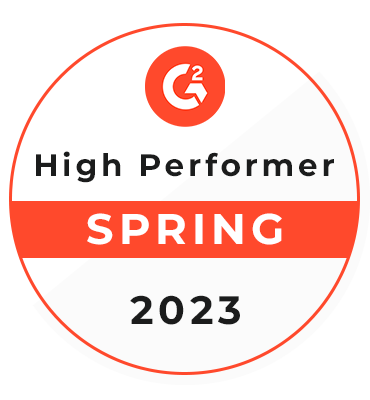The Future of MVP Development: How AI is Changing the Game
Shyam Singh
Last Updated on: 26 September 2025
In today’s competitive digital economy, businesses cannot afford to spend years developing a product only to realize it doesn’t meet customer needs. That’s why the Minimum Viable Product (MVP) approach has become a gold standard for startups and enterprises alike. MVP allows companies to launch quickly, test with real users, gather feedback, and iterate rapidly.
But here’s the twist — Artificial Intelligence (AI) is transforming the MVP development and validation process like never before. From predicting user behavior to automating product testing, AI ensures businesses don’t just build faster but smarter.
This article explores how AI is reshaping MVP development and validation, its key benefits, real-world use cases, challenges, and future outlook.
What is MVP Development and Why Does it Matter?
An MVP is the simplest version of your product that delivers enough value to attract early adopters and validate a business idea with minimal effort.
Key Goals of an MVP:
- Test product-market fit
- Validate business assumptions
- Gather user feedback
- Minimize development costs
- Reduce time-to-market
Traditionally, MVP relied on manual market research, surveys, prototypes, and small-scale testing. However, this approach can be slow, biased, and expensive.
That’s where AI-driven MVP development changes the game.
How AI is Transforming MVP Development
AI introduces automation, prediction, personalization, and deep analytics into the MVP lifecycle. Let’s break it down step by step.
1. AI in Market Research and Idea Validation
AI-powered tools analyze massive amounts of data (social media trends, competitor activities, customer sentiment, search engine queries) to identify market gaps.
Example: Tools like Crunchbase AI insights or ChatGPT for market research can highlight untapped opportunities within minutes.
Benefit: Entrepreneurs validate ideas before spending thousands on development.
2. AI-Powered User Persona Development
Instead of generic customer segments, AI can build dynamic user personas using real-time behavioral data.
- Machine learning algorithms analyze demographics, purchase history, and preferences.
- Businesses can predict what users want before launching an MVP.
Impact: MVP development becomes highly targeted, reducing the risk of building something irrelevant.
3. AI in Prototyping and Wireframing
Traditional prototyping is time-consuming. AI tools like Uizard, Figma AI, and Framer AI generate wireframes and UI components in minutes based on text prompts.
Example: Type “MVP for food delivery app with AI recommendations,” and AI instantly builds a clickable prototype.
4. Accelerated Product Development with AI
AI-assisted coding and low-code/no-code platforms reduce MVP development time drastically.
- GitHub Copilot or Tabnine suggests code.
- AI testing frameworks catch bugs automatically.
- Cloud AI services (AWS, Azure, Google AI) provide scalable infrastructure.
Result: What used to take 6 months can now be done in 6 weeks.
5. Predictive Analytics for MVP Validation
Validation is all about knowing if customers actually need your product. AI uses predictive analytics to simulate adoption rates and future demand.
Example: AI models predict if a ride-hailing MVP will succeed in a new city by analyzing traffic data, population density, and competition.
6. AI-Powered A/B Testing
Instead of manually running split tests, AI automates A/B testing and dynamically adjusts product features for different user segments.
Example: Netflix and Amazon already use AI-driven testing to personalize user experiences.
MVP teams can test 10+ variations simultaneously and instantly pick the winner.
7. Personalized User Feedback Collection
AI chatbots and sentiment analysis tools (like MonkeyLearn or OpenAI-based solutions) analyze user feedback at scale.
Instead of reading 10,000 survey responses, AI summarizes insights and highlights priority areas for iteration.
8. Cost Efficiency through AI Automation
AI automates repetitive tasks such as testing, QA, and analytics.
- Reduces manual effort
- Minimizes cost overruns
- Optimizes resource allocation
Real-World Examples of AI in MVP Development
Let’s explore some case studies where AI reshaped MVP development:
Case Study 1: FinTech MVP
A startup building a loan approval app used AI to analyze financial histories and predict approval chances. The MVP gained traction because it reduced loan approval time by 70%.
Case Study 2: Healthcare MVP
A healthtech startup used AI-powered symptom checkers to validate patient engagement before scaling. Feedback helped improve accuracy before investing in full-scale development.
Case Study 3: E-commerce MVP
An online marketplace tested an AI-driven product recommendation system as its MVP feature. AI insights increased user engagement by 45%.
Benefits of AI in MVP Development & Validation
- Faster Time-to-Market – AI shortens research, coding, and testing cycles.
- Better Accuracy – AI insights reduce guesswork in decision-making.
- Higher ROI – Less wasted investment, more focused product features.
- Scalability – AI-driven MVPs are easier to scale.
- Customer-Centric Products – Personalization ensures customer loyalty.
Challenges of Using AI in MVP Development
While AI is powerful, businesses must address certain challenges:
- Data Privacy Concerns – Collecting customer data responsibly.
- Bias in AI Models – Ensuring fairness in decision-making.
- High Initial Costs – AI tools may require upfront investment.
- Skill Gaps – Teams need AI experts for implementation.
The Future of AI in MVP Development
The next 5 years will bring exciting advancements in AI for MVP:
- Generative AI for instant product mockups
- AI-driven predictive MVP scaling models
- Voice and AR-based MVP prototypes
- Web3 + AI-powered MVPs for decentralized products
Businesses that embrace AI early will lead innovation.
How Fulminous Software Helps with AI-Powered MVP Development
At Fulminous Software, we specialize in blending AI technologies with MVP strategies to help startups and enterprises innovate faster and smarter.
Why Choose Us?
- Expertise in AI/ML, Generative AI, and automation
- Proven MVP development frameworks
- Data-driven validation techniques
- Scalable architecture for future growth
- Dedicated team of AI experts
Call to Action (CTA)
🚀 Ready to launch your next big idea with AI? Don’t waste time and money on outdated MVP approaches.
👉 Partner with Fulminous Software to build, validate, and scale your AI-driven MVP.
📩 Contact Us Today to get a free consultation on AI-powered MVP development.
Conclusion
AI is not just a tool; it’s a game-changer in how businesses ideate, develop, and validate MVPs. From market research to scaling, AI ensures every step is faster, smarter, and more cost-efficient.
As industries become more competitive, the winners will be those who integrate AI into their MVP journey early. The future of product development is AI-powered, customer-focused, and innovation-driven.

 Verified
Expert in Software & Web App Engineering
Verified
Expert in Software & Web App Engineering
I am Shyam Singh, Founder of Fulminous Software Private Limited, headquartered in London, UK. We are a leading software design and development company with a global presence in the USA, Australia, the UK, and Europe. At Fulminous, we specialize in creating custom web applications, e-commerce platforms, and ERP systems tailored to diverse industries. My mission is to empower businesses by delivering innovative solutions and sharing insights that help them grow in the digital era.
Partner with Top-Notch Web Application Development Company!
Discuss your Custom Application Requirements on info@fulminoussoftware.com or call us on +1-903 488 7170.
15 Days Risk-Free Trial

